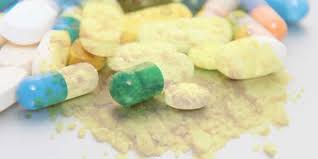
- +86-13363869198
- weimiaohb@126.com

Dec . 05, 2024 06:58 Back to list
Lidocaine Production Companies and Their Role in Pharmaceutical Manufacturing
Understanding Lidocaine Manufacturers A Comprehensive Overview
Lidocaine, a widely used local anesthetic and antiarrhythmic drug, has significant applications in various medical fields, including dentistry, surgery, and acute pain management. With the increasing demand for lidocaine in healthcare, the role of manufacturers in producing this essential medication cannot be overstated. This article aims to provide an overview of lidocaine manufacturers, the production process, market dynamics, and the challenges faced in the industry.
The Importance of Lidocaine
Lidocaine is primarily recognized for its ability to provide local anesthesia, enabling pain-free procedures in dentistry and surgery. It works by blocking sodium channels, which prevents the initiation and transmission of nerve impulses. This characteristic provides quick and effective analgesia, making it an indispensable option for medical professionals.
Additionally, lidocaine is also utilized in the treatment of certain cardiac arrhythmias. Its antiarrhythmic properties help stabilize the cardiac membrane, thus making it a crucial drug in emergency medicine. The versatility of lidocaine amplifies the need for reliable and efficient manufacturers in the pharmaceutical industry.
The Role of Manufacturers
Lidocaine manufacturers play a pivotal role in ensuring the availability of this drug in different formulations, including creams, gels, injections, and patches. The manufacturing process involves several critical steps, including raw material sourcing, formulation development, quality control, and compliance with regulatory standards.
1. Raw Material Sourcing The production of lidocaine begins with the procurement of high-quality raw materials. Manufacturers need to ensure that the active pharmaceutical ingredient (API) complies with established safety and quality benchmarks.
2. Formulation Development Once the raw materials are acquired, the formulation process begins. This step is crucial as it determines the efficacy and safety of the final product. Manufacturers must consider various factors, such as dosage forms, delivery methods, and patient comfort.
3. Quality Control Quality assurance is a fundamental aspect of pharmaceutical manufacturing. Lidocaine manufacturers are required to conduct rigorous testing of their products, including stability, sterility, and potency tests, to ensure that they meet regulatory criteria set by authorities like the FDA and EMA.
lidocaine manufacturers

4. Regulatory Compliance Adherence to Good Manufacturing Practices (GMP) is mandatory for all pharmaceutical manufacturers. These guidelines ensure that products are consistently produced and controlled according to quality standards. Compliance with international regulations is critical for manufacturers aiming to enter global markets.
Market Dynamics
The global lidocaine market has seen significant growth, driven by advancements in medical technology and an increasing prevalence of chronic pain conditions that require effective management. The rising popularity of minimally invasive procedures and cosmetic surgeries has also bolstered the demand for lidocaine-based products.
The market is characterized by a mix of large multinational corporations and smaller specialized manufacturers. Key players include companies that not only produce lidocaine but also engage in research and development to create innovative formulations. Competitive pricing, product differentiation, and distribution networks are crucial factors that influence market dynamics.
Challenges Faced by Manufacturers
Despite the growth potential, lidocaine manufacturers face several challenges. One significant issue is the fluctuating prices of raw materials, which can impact production costs. Regulatory hurdles also pose a challenge, as manufacturers must navigate complex approval processes to bring new products to market.
Additionally, the rise of counterfeit drugs is a major concern in the pharmaceutical industry. Manufacturers must implement stringent security measures to protect their products and ensure patient safety. Education and awareness campaigns are also essential to combat the prevalence of counterfeit lidocaine products.
Conclusion
Lidocaine manufacturers play a critical role in the healthcare ecosystem by providing essential products that ensure patient comfort and safety during medical procedures. As the demand for lidocaine continues to grow, manufacturers must adapt to market changes, regulatory requirements, and technological advancements. By focusing on quality, innovation, and compliance, lidocaine manufacturers can continue to meet the evolving needs of healthcare providers and patients alike. This commitment not only fosters trust in their products but ultimately contributes to improved healthcare outcomes globally.
-
GS-441524 White Liquid Production for Factories | AI-Optimized
NewsAug.02,2025
-
AI-Optimized CAS: 79099-07-3 Factories for High Yield
NewsAug.01,2025
-
Premium CAS 1451-83-8 Factory with GPT-4 Turbo | AI-Optimized
NewsJul.31,2025
-
Pharmaceutical Intermediates - AI-Optimized Synthesis & Purity
NewsJul.31,2025
-
Top CAS: 79099-07-3 Factories & Wholesale Supplier from China
NewsJul.30,2025
-
High-Quality GS-441524 for White Liquid Type Factories & Suppliers
NewsJul.29,2025